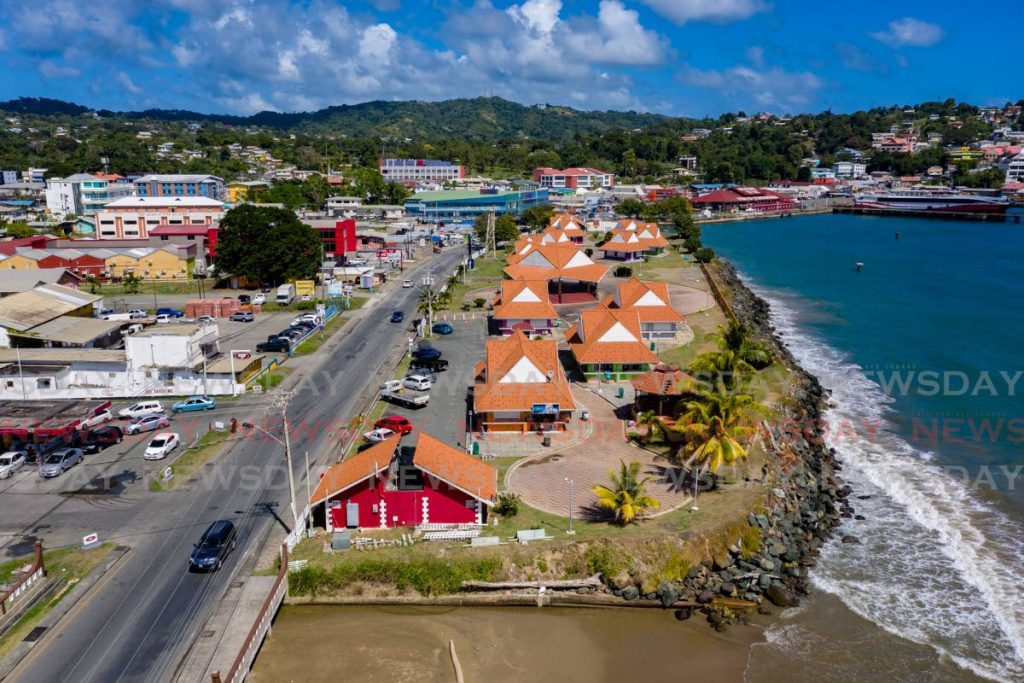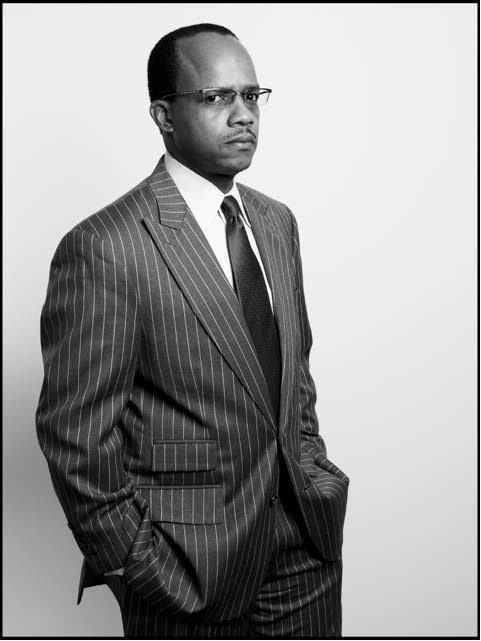Paying for the future: NY financial adviser talks investment after pandemic

For over 20 years Andre Wright has helped governments and companies in the Caribbean turn imagination into reality by helping them secure financing for infrastructure.
A financial consultant, Wright is the executive vice president of the Standard International Group Ltd, a financial advisory firm with focus on the region.
Infrastructure has widely been considered one of the benchmarks of economic growth, as good roads, airports and hospitals are the tools needed to support economies and boost trade.
If engineers are the backbone of these projects, then Wright is the visionary mind, as he secures the cash and skill needed to take a vision from the drawing board and make it a reality.
A Chicago native and alumnus of Morehouse College in Atlanta, Georgia, Wright made his bones shortly after graduating, while working for ten years in Wall Street with investment firms Bear Stearns and the Lehman Brothers, where he regularly dealt with Caribbean portfolios. It was in this fast-paced environment of big risk and even bigger reward that he learned the tools of the trade to start his own company in 1996, with the Caribbean a key focus.
Wright’s introduction to the business world came at a time of great uncertainty for the Caribbean.

A 2001 article in Finance and Development Quarterly reported that several countries in the Caribbean struggled with economic problems from the late 1980s to the early 1990s owing to the collapse of the sugar and banana industries, coupled with slow growth in the manufacturing sector.
Seeing the need for a robust financial management service in the region, Wright filled this niche by focusing on providing the resources and technical expertise to revamp Caribbean infrastructure.
From the late 90s to now, Wright has seen first-hand the evolution of the region, and as times change, so do the demands and needs of the economy.
“When I started, there was a big need for airports and other infrastructure projects, and now we went through the cruise port development, and as I look forward, we foresee a large development or demand for capital in telecom, as well as for environmental matters such as clean water, clean air, et cetera.”
In some ways a financial adviser has to see what others can’t by observing trends in spending to figure out where the next economic boom will be and guide his client on the basis of these observations. This borderline clairvoyant ability to see future opportunity can not only inform clients where and how to invest their infrastructure, but also what projects to avoid.
Wright said in his experience it is important for clients in the public and private sectors to place practicality at the top of their priorities for any infrastructure project and gauge how well a given project could recoup expenses.
“One of the first things is for them to do their own soul-searching to ensure the projects that they want are viable from their perspective, and not just a wish list or a dream.
“It needs to be a project that is sustainable, that can benefit the community...and then I think from there they can go forward and identify the right team of professionals that can assist them in making the legal, financial and structural marketability assessment.”
While community buy-in to the project is an important aspect of long-term success, Wright says the political will, the client’s priority and making the project appealing to institutional investors are just as important.
Infrastructural development is especially important in the Caribbean, which faces threats from hurricanes and tropical storms annually. In 2017, islands in the Lesser Antilles were ravaged by two category five hurricanes less than 14 days apart, with damage and losses estimated at US$130 million.
For small island developing states, economic losses from hurricanes and other natural disasters can have long-lasting effects. A Moody’s report from 2017 showed that the average annual damage from natural hazards from 1980-2015 was 1.5 per cent of GDP in emerging markets, versus 0.3 per cent of GDP in developed economies.
One of the major pieces of infrastructure affected by the hurricanes was the Princess Julianna Airport in St Maarten, a Dutch overseas territory.
Wright was called on to source financing for repairs, a large task involving US institutional investors, the European investment bank and the World Bank representatives
“We then continued to keep the bondholders – who had over US$100 million outstanding at that time – comfortable so that they (investors) would not go bankrupt, which they did not: they received several waivers.
"We were able to co-ordinate on behalf of the government via the World Bank, which is there to support and provide the functions of the Kingdom of the Netherlands Trust Fund."
The trust fund via the World Bank provided a US$50 million grant and the European investment bank came in with a US$50 million low-interest loan, which achieved one of the lowest rates ever in the Caribbean.
Co-ordinating these resources and coming up with practical, realistic financial models was no easy task. But repairing the airport was the first step towards restarting St Maarten’s economy as an island that is heavily dependent on tourism.
While travel restrictions remain in effect across the Caribbean and tourism has ground to a halt, Wright says countries should use this time to make themselves more attractive and appealing to potential customers, as the industry will be back with a bang when the pandemic is over.
“Keeping the environment clean particularly, in the region, if it’s going to maintain the beautiful beaches, the high-quality air and those things that attract tourism to the region – those elements need to be maintained: so clean air, clean water, trash picked up and sufficient broadband.
“Among the millennials, they have more travel options and are willing to explore more than their parents, and when they get to those destinations, most of them will like to have the broadband and the telecom (connections) to show their friends what they’re doing.”
To achieve this, countries should do their best to strengthen telecommunications infrastructure, giving their islands the modern comforts with the aesthetic of a classic vacation destination.
Even with the success he has gained from his years working in the Caribbean, Wright has to maintain a competitive advantage as a financial adviser at a time when financial advisory firms are multiplying.
The Bureau of Labor Statistics Occupational Outlook Handbook reports that employment of finance planners is expected to increase by seven per cent from 2018-2028. So how does Wright distinguish his brand in an increasingly saturated and competitive market?
“The Caribbean is a very unique and small place with multiple islands and multiple cultures, it’s very low volume – and that’s why we were able to make it a niche market for us. So we don’t foresee the large institutions coming in to do the type of services we provide, because the returns won’t necessarily be there for them unless it’s a very large project.

“Those projects that are less than US$250 million. generally (they) won’t pay attention to them because of the long lead times, the travel, the cost to execute and risk of it not getting done.”
In his blog, financial adviser Michael Wellings suggests boutique firms (small financial firms) serve fewer clients than large corporations and can offer personalised services based on a client’s needs. Wellings also suggests that firms like Wright’s company come with extensive knowledge and understanding of a particular region that newer corporations may find it hard to compete with.
For Wright, the Caribbean remains a region of great opportunity even in the face of a global pandemic: he sees potential for future investment and development
In his experience as a financial adviser, one of the most valuable assets to secure from a client is trust: trust that they can get the job done despite the challenges of the day.


Comments
"Paying for the future: NY financial adviser talks investment after pandemic"